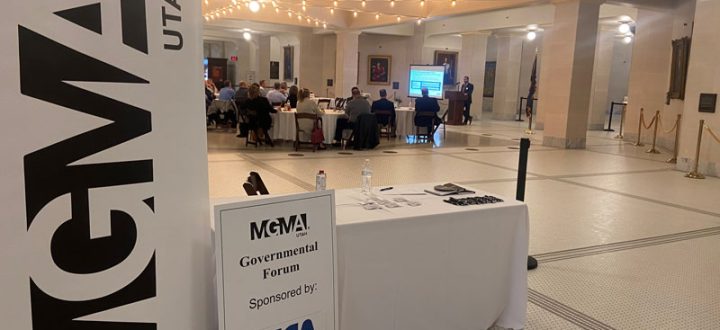About UMGMA
The MGMA of Utah is a group of medical group practice managers who strive to be an organization that provides optimal experiences for growth in the medical practice management profession.
Members of MGMA Utah work to achieve a higher quality of medical care in Utah and strive to better serve the physicians who trust us with the responsibility for their practices. MGMA Utah members enjoy regular meetings, annual conferences and the opportunity to serve on various committees.

Looking to Join MGMA Utah?

Become a Member
Members of MGMA Utah attend many networking events and conferences throughout the year. We believe that developing and growing professional relationships is key to accelerating the careers of medical managers throughout Utah.

Become a Sponsor
There are many ways you can be a part of our organization and showcase all that your company has to offer to our fantastic membership. All sponsorship levels include an exhibit booth in the location of your choice at our Annual Spring Conference.
Our Sponsors
Quick Links
Upcoming UMGMA Events
2024 UMGMA Membership Summit
February 23, 2024
2024 National Event: MGMA Regional Conference
April 25, 2024 – April 27, 2024
2024 Virtual JULY Power Lunch
July 11, 2024
UMGMA Fall Leadership Conference
September 26-27, 2024
2024 National Event: MGMA Leaders Conference
October 6, 2024 – October 9, 2024
2024 Virtual DECEMBER Power Lunch
December 5, 2024

